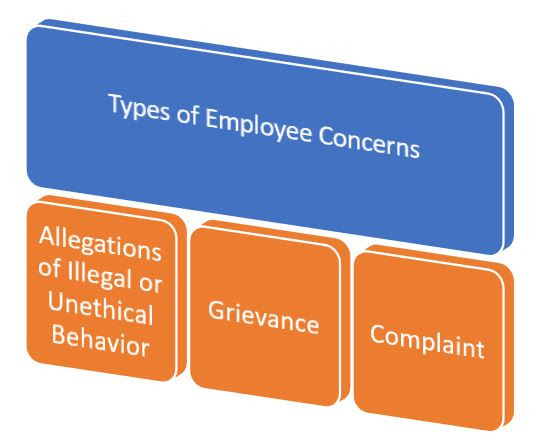Whenever people work together, conflicts will naturally arise. Here’s a framework to help leaders resolve conflicts. This article will describe three categories of conflicts and a process that can be used to resolve each.
_______________________________________________________________
 Allegations of management misconduct
Allegations of management misconduct
If employees believe a manager has committed unethical and/or illegal acts, (e.g. theft, harassment), they need to inform the GM, or if the GM is involved, the board. A whistleblower policy should define misconduct, provide a reporting protocol and prohibit retaliation. The recipient of the complaint (GM or board) will need to ensure an investigation. This is best done by an outside investigator if:
- The allegations are about the GM,
- There is a staff perception of partiality on the part of an internal investigator,
- An internal investigator lacks experience with conducting investigations, or
- The situation is complex.
Specific decisions/situations that one or more employees feel are unfair
For employees not in a union bargaining unit, a workplace conflict policy is needed. Such policies typically involve going directly to the person the conflict is with, or to one’s own supervisor, HR, and, if not resolved at those steps, to the GM. The GM’s final decision should be guided by consistent application of existing policy. A Conflict Resolution Request Form can help employees organize their thoughts.
General complaints about the GM
 When employees go directly to the board to complain about the GM’s management style or general approach, boards should refer these complaints to the GM with a strict prohibition on retaliation, and request regular progress reports.
When employees go directly to the board to complain about the GM’s management style or general approach, boards should refer these complaints to the GM with a strict prohibition on retaliation, and request regular progress reports.
Advice to GMs:
- Arrange listening sessions with individuals or small groups. Take notes. Avoid arguing or defending.
- Set up task forces to develop options for resolving specific issues.
- Be visible on the floor at strategic times; don’t appear to be “hiding out” in your office.
- Report to staff and the board on issues raised and steps taken toward resolving them.
- Get coaching from an outside party who can help you see things in a neutral light.
Conflicts do not need to become problems if they are handled and resolved appropriately.
_______________________________________________________________
Resources related to Workplace Conflict:
_______________________________________________________________
Grab and Go Solutions is a resource from CDS Consulting Co-op to provide easy to implement solutions to common issues facing food co-ops. Watch for future releases tackling a wide variety of topics including HR, governance, member engagement, safety, store and growth.

Brought to you by CDS Consulting Co-op’s Human Resources Team
Jeanie Wells, Carolee Colter, Sarah Dahl, Melanie Reid
Have more questions?
Get in touch with one of our consultants.
